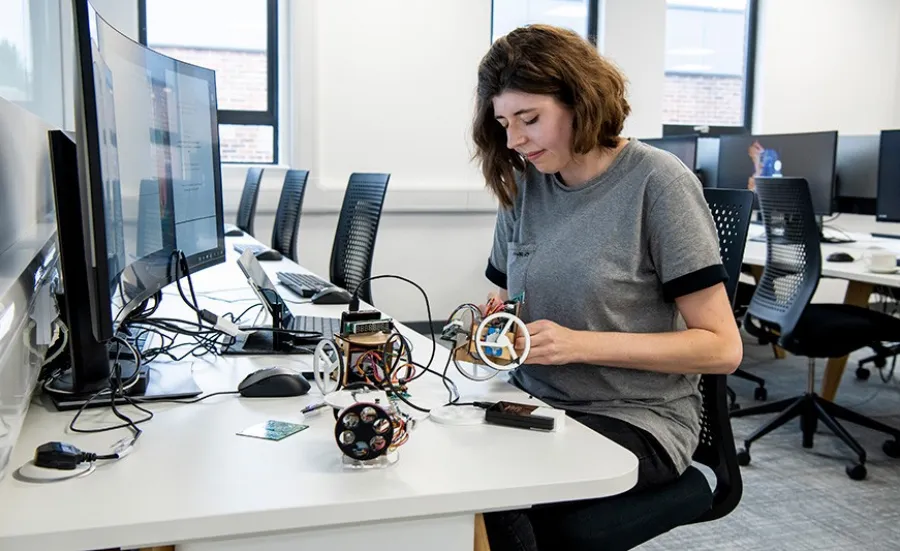Current research degree projects

Explore our current postgraduate research degree and PhD opportunities.

Explore our current postgraduate research degree and PhD opportunities.

Complex carbohydrates (or glycans) are the most abundant biopolymers in Nature. Plants are among the largest producers of glucose-based carbohydrate polymers, which they use as the essential scaffolding of the cell wall (cellulose) and as energy storage (starch). New research demonstrates that carbohydrates covalently attached to proteins activate specialized plant signalling networks that control plant growth and provide protection against both biotic and abiotic factors.
This project aims to accelerate bulk alloy discovery for additive manufacturing by leveraging smart design and 3D printing of material libraries to dramatically increase the throughput of characterisation and testing. Integrated with AI-assisted workflows, the project will streamline data curation and enable rapid exploration of structural material systems.
This PhD project aims to accelerate the discovery of heat-resistant austenitic alloys by integrating machine learning with high-throughput combinatorial experiments. Through iterative design, synthesis, and validation, the project will develop advanced materials for high-temperature reactors, significantly reducing alloy development time and enhancing structural integrity under creep-fatigue conditions.
The extreme temperature environment around a hypersonic vehicle can presently not be simulated accurately. This project will close this gap by coupling a non-equilibrium, real-gas shock-capturing fluid solver in our AMROC/VTF framework to a general-purpose solver for solid heat conduction and surface radiation. Verification and validation cases will be studied.
Traditional approaches to metallic materials innovation against creep-fatigue rely on extensive physical testing which is currently conducted in a sequential, low-throughput manner. This project aims to develop a high-throughput creep-fatigue qualification protocol by integrating full-field imaging techniques with meso- and small-scale testing, to faithfully capture design-relevant properties for fusion energy.
This project is in the emerging field of design of advanced materials. It aims to facilitate applications of lattice metamaterials through development of computational material characterization tools. These tools will enable the formulation of design strategies, guidelines, and methods as a long-term objective.
Respiratory diseases develop progressively. However, current monitoring methods are unsuitable for long-term continuous monitoring. Near-infrared spectroscopy (NIRS) uses light to interrogate the optical properties of tissue. This project aims to develop a wearable system for long-term respiration monitoring using NIRS powered by artificial intelligence (AI) to aid in analysis.
This project will explore the combination of Stacked Intelligent Metasurfaces (SIM) and Orthogonal Time Frequency Space (OTFS) in the next-generation Space-Air-Ground Integrated Network (SAGIN).
Imagine a world where there is Internet access and radar-assisted living and quantum security, wherever there is light. The objective of this project is to implement Integrated Sensing and Communication (ISAC) in visible light bands.
This PhD project will develop advanced ultrasonic array techniques for hydrogen leak detection, localisation and characterisation in complex, noisy environments. Combining mathematical modelling and physics-informed signal processing with AI-driven methods (including PINNs), the research aims to enhance robust, cost-effective leak detection with industrial applications on complex sites.